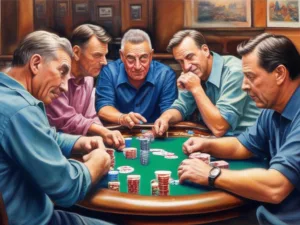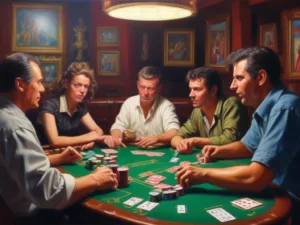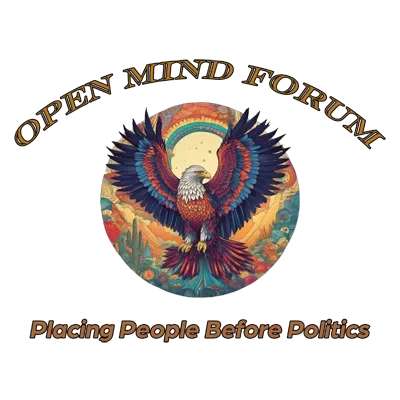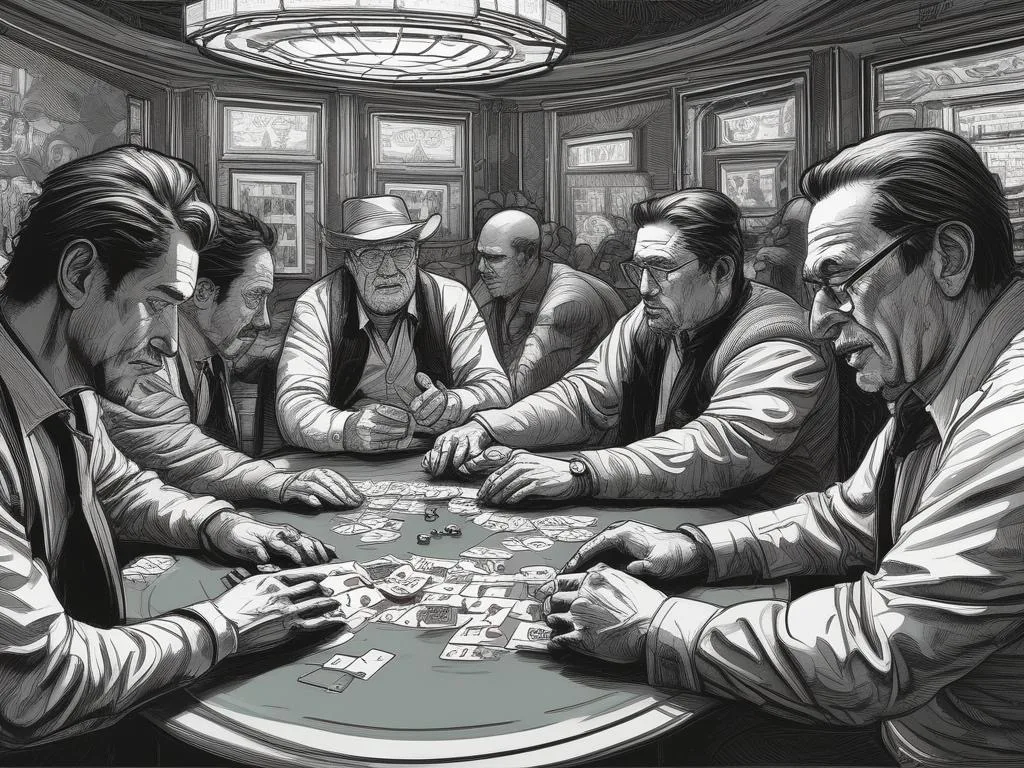Lessons for Life in Navigating Uncertainty
Introduction to Lessons for Life in Navigating Uncertainty
Texas Hold ’em is More than a Game. It is a place to seriously learn through the experiences of both success and failure, Lessons for Life in Navigating Uncertainty is a life skill that is always learned through failure and critical assessment of that failure. I think there is no better place to learn these life skills than playing the game of Texas Hold ‘em Poker. There is not a moment in the game that one does not have critical decisions. Think about the old Kenny Rogers song, “The Gambler” in which he sings “You got to know when to hold ‘em, know when to fold ‘em, know when to walk away and know when to run.”
He got one thing all wrong, however, when he advised “never count your money when you’re sitting at the table, there’s plenty time for counting when the dealings done.” Nope, not only do you count your money, but you also count all the rest of the money each player sitting at the table as well. Knowing when to use your chips to bully or to not even try to compete when the odds say no is an important tool to use.
Texas Hold ’em and the Art of Making Decisions with Partial Information
Texas Hold ’em, at its heart, mirrors the decision-making process in life. In every hand, players face the reality of limited information, forcing them to choose actions without complete certainty. This skill goes far beyond gut instinct. Instead, Texas Hold ’em trains players to weigh probabilities, analyze others’ behaviors, and continuously adapt their strategies. Each decision—whether to fold, call, or raise—depends on reading the table and assessing

opponents’ motives based on subtle patterns.
In life, we also often make decisions with only partial information. Yet, just as a successful Texas Hold ’em player uses calculated probability and observation to guide their choices, we can apply these same methods to our own situations. Learning to make decisions under these conditions fosters resilience, sharpens our focus, and increases our confidence when facing the unknown. Texas Hold ’em offers these skills, allowing us to understand and maneuver in a world where complete certainty is rare.
Learning to Navigate Probabilities Over Blind Luck: Texas Hold ’em is More than a Game
Texas Hold ’em teaches players to rely not on luck but on probability and statistical analysis. Each hand demands calculations about odds: What are the chances of completing a flush? How likely is the opponent bluffing? Legendary poker theorist David Sklansky argues that players who understand and apply mathematical principles outperform those who act on hunches (Sklansky, 2013). Likewise, a life built on strategy and foresight tends to be more secure than one left to chance.
Poker players know that calculating pot odds—the ratio of the current pot size to the cost of a contemplated call—helps them assess the risk versus reward in a decision. This calculated risk mirrors life decisions involving resource investment, such as career shifts or personal commitments. By internalizing these mathematical concepts, Texas Hold ’em players develop a structured approach to uncertainty, applicable to business, finance, and personal life.
Reading Others as a Life Skill: Texas Hold ’em is More than a Game
Texas Hold ’em emphasizes the importance of observing others to gain a strategic advantage. Every player brings unique patterns, tells, and tendencies to the table. Skilled players watch every move their opponents make, noting subtle cues that reveal intentions. Recognizing these signals helps players make informed decisions, even with limited information about their opponents’ hands. Psychologist Dr. Albert Mehrabian’s research on non-verbal communication underscores that facial expressions, gestures, and body language convey more than words, making these skills useful in various interpersonal situations (Mehrabian, 1971).
This understanding proves invaluable in life, where reading people becomes critical in both professional and personal settings. Whether it’s sensing when a colleague is being evasive or noticing the underlying emotion in a friend’s reaction, Texas Hold ’em cultivates the ability to interpret unspoken information. These skills help us respond effectively, negotiate wisely, and build stronger relationships, all of which depend on grasping the motivations behind others’ actions.
Observing and Adapting to the Actions of Others
In Texas Hold ’em, players must adapt their strategies based on evolving dynamics. A passive player may suddenly go all-in, or an aggressive player might fold unexpectedly. In both cases, a good player doesn’t ignore these changes but learns from them, adjusting their tactics to better match the current circumstances. This adaptability is essential, given that every hand represents a new scenario. Annie Duke, in her analysis of poker decision-making, points out that players who consistently observe and adapt succeed because they remain open to shifting tactics based on new information (Duke, 2018).
Adapting to change is equally important outside the poker room. Life constantly presents us with new challenges, requiring us to remain flexible. People who resist change tend to struggle when conditions shift unexpectedly, whereas those who can pivot their approach often find themselves more resilient in the face of adversity.
Balancing Risk and Reward Thoughtfully: Texas Hold ’em is More than a Game
While Texas Hold ’em requires players to manage risk, it also emphasizes knowing when a potential reward justifies that risk. For example, choosing to bluff can result in winning a significant pot, but it also risks losing everything. Navigating this tension between risk and reward reinforces the value of timing and opportunity recognition in both poker and life. Dr. Daniel Kahneman’s work on behavioral economics reinforces this principle, showing that our brains assess risk based on reward potential, making thoughtful analysis crucial for sound decision-making (Kahneman, 2011).
This concept extends to situations like career choices, where we must decide if pursuing a bold new role will lead to greater long-term benefits. In both scenarios, Texas Hold ’em teaches us that managing risks in a calculated way builds confidence and minimizes reckless actions.
Practicing Patience as a Powerful Strategy:

Texas Hold ’em emphasizes patience, teaching players that not every hand is worth playing. Waiting for the right cards can mean the difference between success and failure. This approach teaches players that restraint is just as powerful as action. Behavioral science supports this, as research by Dr. John Groopman shows that impulsive actions can lead to suboptimal outcomes, while patience allows for careful consideration of the best move (Groopman, 2008). David Sklansky suggests that if one plays 1 in 17 hands one has a fatal leak in one’s game in a cash game. In other words, one must grind it out with patience and humility. In a tournament, on the other hand, the changes. In my humble opinion, one should never play more than 1 in 12 on average.
This shift from a cash game comes from two primary truths of probability. In a cash game, one of the unknowns is you cannot predict how much can be lost at the table which means you must play with greater patience. In a tournament, chips do not represent money to be lost, rather the buy-in price is a fixed number, a number one commits to losing. This means, tournament play requires acquiring chips early and often so greater risk/reward calculations must be made.
In life, we encounter situations where rushing can lead to mistakes, while waiting might reveal better options. Texas Hold ’em’s lesson of patience equips players with the discipline to avoid unnecessary risks, teaching that sometimes the best decision is to wait until the odds align in our favor.
Conclusion
Texas Hold ’em delivers a unique blend of lessons for life. From calculating risks to observing others and managing patience, the game offers a practical toolkit for navigating uncertainty. By cultivating skills like strategic thinking, adaptability, and self-restraint, Texas Hold ’em teaches us to make informed decisions despite partial information. As we approach each challenge in life, we can apply these principles to improve our understanding, resilience, and success. Texas Hold ’em, ultimately, is more than a game—it is a teacher, providing lessons that echo far beyond the poker table.
Sources Cited
Duke, A. (2018). Thinking in Bets: Making Smarter Decisions When You Don’t Have All the Facts. Portfolio.
Groopman, J. (2008). How Doctors Think. Mariner Books.
Kahneman, D. (2011). Thinking, Fast and Slow. Farrar, Straus and Giroux.
Mehrabian, A. (1971). Silent Messages: Implicit Communication of Emotions and Attitudes. Wadsworth Publishing.
Sklansky, D. (2013). The Theory of Poker. Two Plus Two Publishing.
Suggestions for Future Reading
- “Super/System” by Doyle Brunson – A seminal work on poker strategy by a poker legend.
- “Positively Fifth Street” by James McManus – An inside look at the drama and decisions in the high-stakes poker world.
- “The Psychology of Poker” by Alan N. Schoonmaker – An analysis of psychological tactics and strategic approaches to the game.
- “Every Hand Revealed” by Gus Hansen – A play-by-play guide to poker hands by a top player, highlighting strategic choices.
- “Bringing Down the House” by Ben Mezrich – The real story of the MIT blackjack team and the role of strategy in gambling.
- “Fooled by Randomness” by Nassim Nicholas Taleb – A philosophical look at luck, probability, and decision-making.
- “The Art of Learning” by Josh Waitzkin – A guide on mastering skills in competitive settings, useful for poker players.
- “Thinking in Bets” by Annie Duke – Insights into decision-making under uncertainty, from a professional poker perspective.
- “Grit” by Angela Duckworth – A study on persistence, relevant to both poker players and personal resilience.




